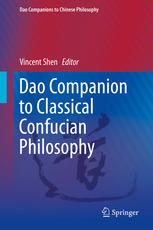

Most ebook files are in PDF format, so you can easily read them using various software such as Foxit Reader or directly on the Google Chrome browser.
Some ebook files are released by publishers in other formats such as .awz, .mobi, .epub, .fb2, etc. You may need to install specific software to read these formats on mobile/PC, such as Calibre.
Please read the tutorial at this link: https://ebookbell.com/faq
We offer FREE conversion to the popular formats you request; however, this may take some time. Therefore, right after payment, please email us, and we will try to provide the service as quickly as possible.
For some exceptional file formats or broken links (if any), please refrain from opening any disputes. Instead, email us first, and we will try to assist within a maximum of 6 hours.
EbookBell Team

4.7
86 reviewsThis volume presents both a historical and a systematic examination of the philosophy of classical Confucianism. Taking into account newly unearthed materials and the most recent scholarship, it features contributions by experts in the field, ranging from senior scholars to outstanding early career scholars.
The book first presents the historical development of classical Confucianism, detailing its development amidst a fading ancient political theology and a rising wave of creative humanism. It examines the development of the philosophical ideas of Confucius as well as his disciples and his grandson Zisi, the Zisi-Mencius School, Mencius, and Xunzi. Together with this historical development, the book analyzes and critically assesses the philosophy in the Confucian Classics and other major works of these philosophers.
The second part systematically examines such philosophical issues as feeling and emotion, the aesthetic appreciation of music, wisdom in poetry, moral psychology, virtue ethics, political thoughts, the relation with the Ultimate Reality, and the concept of harmony in Confucianism.
The Philosophy of Classical Confucianism offers an unparalleled examination to the philosophers, basic texts and philosophical concepts and ideas of Classical Confucianism as well as the recently unearthed bamboo slips related to Classical Confucianism. It will prove itself a valuable reference to undergraduate and postgraduate university students and teachers in philosophy, Chinese history, History, Chinese language and Culture.